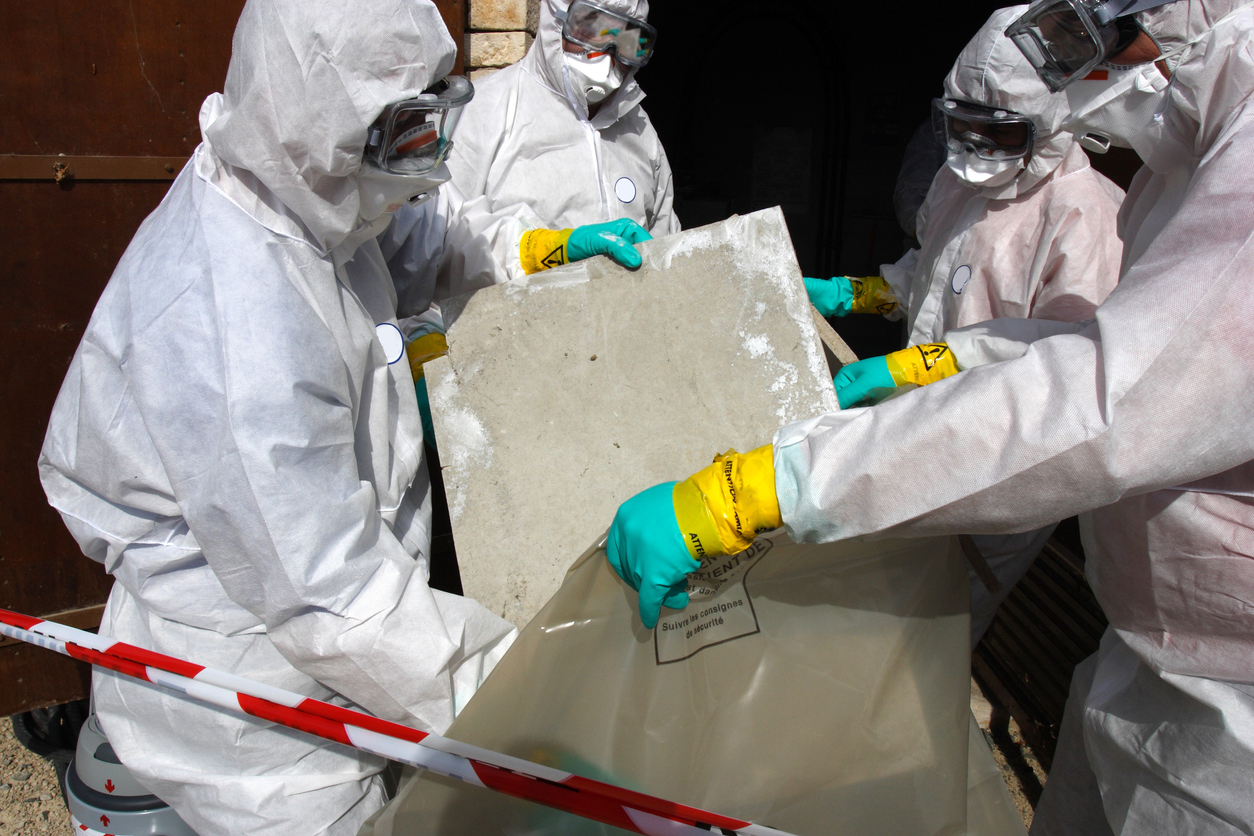Asbestos and smoking can lead to lung cancer and heart issues. Both toxic substances are dangerous on their own, but the risks of smoking taken together with exposure to asbestos is the most deadly combination.
In the United States, smoking kills 480,000 people each year. Another 41,000 die from exposure to secondhand smoke. In comparison, there are between 12,000 to 15,000 deaths from asbestos, 2,500 of which are deaths from mesothelioma. Smoking is a more common way to die, but either way, death by either cigarettes or asbestos exposure is a painful experience.
What Smoking Does to Your Body
According to the Centers for Disease Control and Prevention, cigarette smoking causes poor health, is the cause of many diseases, and it harms nearly every organ. These are some of the organs it can damage:
- Lungs
- Heart
- Blood vessels
- Mouth
- Digestive system
- Bladder
- Bones
- Reproductive organs
Smokers commonly experience wheezing and coughing. They can also develop asthma and they’re more susceptible to colds. On top of lung cancer, smokers are also at a higher risk of developing deadly conditions like chronic obstructive pulmonary disease, emphysema, and pneumonia.
What Asbestos Does to Your Body
Most cases of lung cancer are caused by smoking or exposure to secondhand smoke, but approximately 4% to 12% of lung cancer cases are mesothelioma that was caused by exposure to asbestos. Most of these cases were caused by asbestos exposure at work, and some have also been caused by exposure to talc in baby powder.
On top of lung cancer, smokers are also at a higher risk of developing deadly conditions like chronic obstructive pulmonary disease, emphysema, and pneumonia.
Asbestos harms the lungs when it is inhaled. In cases of mesothelioma, this causes pain and a dry cough. The asbestos settles in the lungs and causes tumors. As the tumours grow, one by one the affected individual’s organs will begin to fail as increasing pressure is placed on them.
Another condition caused by asbestos is asbestosis. This condition is caused when inhaled asbestos causes scarring in the lungs. This scarring makes it harder for affected individuals to breathe because oxygen and carbon dioxide cannot easily pass through scarred lungs.
Mesothelioma is always fatal. The majority of people who are diagnosed with this condition will die within a few months to two years. Asbestosis is fatal in the most serious cases. Some patients can live with this disease for decades, though they will continue to struggle to breathe.
What to Expect if You Are Diagnosed
If you are a smoker or you’ve been exposed to asbestos and you’ve developed symptoms like a dry cough, chest pain, or difficulty breathing, it’s time to get checked out by a doctor. You can expect to go through the following stages.
Diagnosis
If your doctor suspects you may have lung cancer, they may order an X-rays, bone scans, or CT scans to detect the presence of lesions or tumors. They may also use sputum cytology to examine any sputum you are producing under the microscope to check for lung cancer cells.
Staging
Once lung cancer has been confirmed, you’ll move on to staging, which is the part of the process when they determine which stage your cancer is in. Your doctor will prescribe a course of treatment based on your stage.
Some lung cancers are treatable if they’re caught at an early stage. Mesothelioma is typically not caught until it is advanced because its symptoms mimic many other less-serious conditions. However, no matter what stage your mesothelioma is at when you are diagnosed, there is no cure.
If you are a smoker or you’ve been exposed to asbestos and you’ve developed symptoms like a dry cough, chest pain, or difficulty breathing, it’s time to get checked out by a doctor.
Treatments
If your cancer is not advanced enough that it has spread beyond your lungs, your doctor may recommend surgery. Some of the types of surgery that may be able to help you include:
- Wedge resection: This surgery may work with small tumours. It involves removing a small section of the lung that contains the tumor.
- Segmental resection: This surgery works on larger tumours that are contained to one area of the lung. It removes a section of the lung without removing the entire lobe.
- Lobectomy: This surgery may be used in serious cases where an entire lobe must be removed to get rid of the cancer.
- Pneumonectomy: This is the most serious type of surgery. It involves the removal of an entire lung.
When the cancer has spread beyond the lungs, doctors may use radiation and chemotherapy to treat it. Targeted drug therapy and immunotherapy may also be used in your treatment.
At this time, mesothelioma treatments mainly involve palliative care. Your treatment options will focus on controlling your pain and keeping you comfortable. Radiation, chemotherapy, and surgery may be used to slow the progress of the tumors to give you as much time as possible.
Filing a Mesothelioma Lawsuit
One mesothelioma law firm recommends that you tell your doctor if you are having symptoms of lung cancer and you have been exposed to asbestos on the job. If you end up filing a lawsuit, you’ll need this medical record to use as evidence.
[ymal]
There are two types of lawsuits you can file if you or a loved one has mesothelioma: personal injury or wrongful death. You may be able to file a lawsuit that can help you pay for treatments that can improve your quality of life.
The average settlement for mesothelioma cases is $2.4 million, though this can vary significantly. The largest mesothelioma verdict to date was $250 million. This was a complex case with many factors involved, including punitive damages and company negligence.
Filing a Lawsuit Against Tobacco Manufacturers
Many states and individuals have also sued tobacco manufacturers, with limited success. These cases are more difficult to win because when you smoke you assume the risks that are clearly labeled on the cigarette or chewing tobacco products.
Another reason it can be difficult to win these cases is because federal laws that are more lenient on tobacco manufacturers may supersede state laws. Many cases have been thrown out and many more are still under appeal. You should speak to a lawyer to find out if you potentially have a viable case.
If you are exposed to asbestos at work, make sure your company issues you appropriate and well-fitting personal protective equipment. If you’re a smoker, quitting now will reduce your chances of developing lung cancer. Ask your doctor to recommend strategies for quitting. There are prescription drugs available that may make quitting easier.











